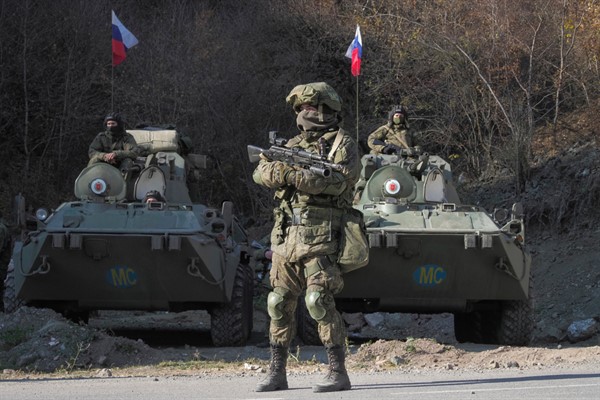Armenia and Azerbaijan signed an agreement last week to end six weeks of bloody fighting over the disputed enclave of Nagorno-Karabakh. The Russia-brokered deal requires Armenia to give up much of the territory it controlled prior to the recent hostilities, and calls for Moscow to maintain a peacekeeping force of just under 2,000 soldiers.
The agreement was widely seen as a win for Russia, which has regained substantial influence in the South Caucasus region, and for Turkey, whose military support for Azerbaijan was critical to the gains it made on the battlefield. Western powers were largely left out in the cold, including the United States and France, the co-chairs with Russia of the so-called Minsk Group, which was created by the Organization for Security and Cooperation in Europe during the 1990s to negotiate a settlement to the conflict. But Western countries might still be able to play a role in mediating a more permanent settlement in the future, according to Alexander Gabuev, a senior fellow and chair of the Russia in the Asia-Pacific Program at the Carnegie Moscow Center.
Gabuev joined WPR’s Elliot Waldman on the Trend Lines podcast this week to discuss the implications of the peace deal for the balance of power in the South Caucasus.

